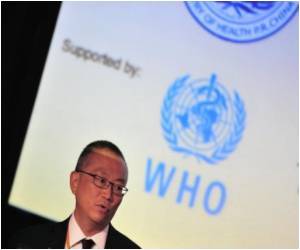
In its first report on the 17 neglected tropical diseases, such as Dengue fever, leprosy, river blindness or bilharzia, the WHO said that 534,000 people die every year often after receiving minimal care or treatment.
An estimated one billion of the 2.7 poorest people in 149 countries are affected by one or more of the diseases, sometimes by as many as five or seven of them simultaneously.
"While the scale of the need for prevention and treatment is huge, the poverty of those affected limits their access to interventions and the services needed to deliver them," WHO Director General Margaret Chan said in the report.
"Diseases linked to poverty likewise offer little incentive to industry to invest in developing new or better products for a market that cannot pay," she added.
The UN health agency underlined that such unrelenting and debilitating infections and parasitic diseases, which cause blindness, disability and deformities, do not kill in the same numbers as HIV/AIDS or tuberculosis and stay out of the limelight, with the exception of Dengue.
Advertisement
"Substantial funds" were coming from private foundations and governments, while medical research has grown and pharmaceutical companies have made "generous drug donations" to treat some neglected tropical diseases.
Advertisement
The global health body spoke three years ago of an "unprecedented commitment" to eradicate the diseases, which are mainly present in Africa and Latin America, as well as parts of Asia.
Source-AFP








